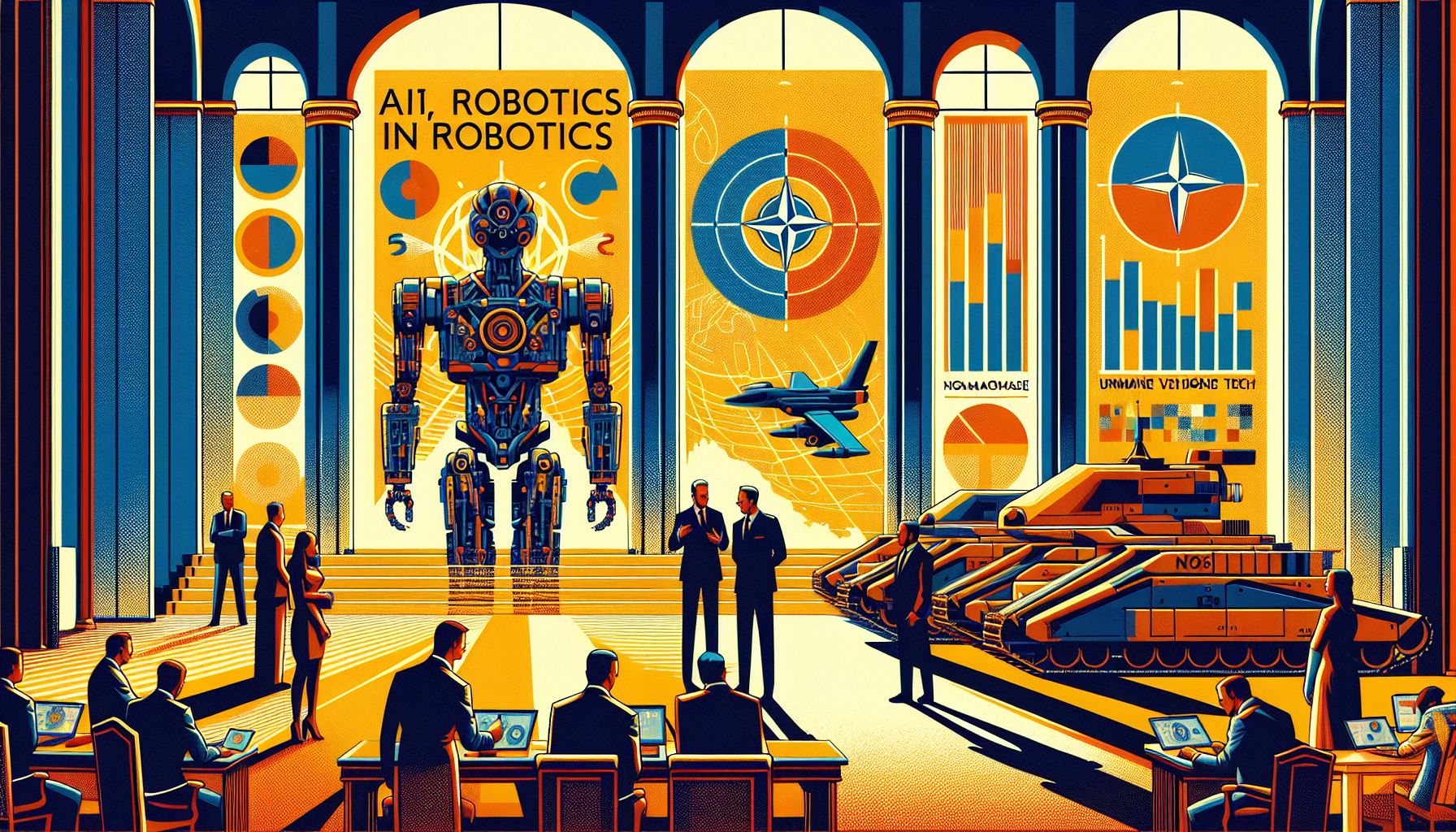NATO's €1 Billion Fund Invests in AI, Robotics, and Space Tech

NATO’s venture capital fund makes its first investments in startups focusing on AI, unmanned vehicles, and space technologies to strengthen defense capabilities amid rising geopolitical tensions.
Investments in Deep Tech
The NATO Innovation Fund (NIF) has allocated funds to four pioneering startups, each specializing in different sectors of deep technology. ARX Robotics, based in Germany, focuses on unmanned ground vehicles designed for heavy-lifting and surveillance tasks. London-based Fractile AI aims to accelerate the training of AI models, making advancements in computational speed and efficiency. iCOMAT, a British manufacturer, develops lightweight materials for vehicles, while Space Forge, a Welsh company, utilizes space conditions to manufacture high-performance semiconductors.
Strategic Partnerships
In addition to direct investments, NIF will support several venture capital funds, including Join Capital, Vsquared Ventures, OTB Ventures, and Alpine Space Ventures. These partnerships aim to foster innovation in regions of Europe that traditionally struggle to attract early-stage funding. According to Chris O’Connor, a partner at NIF, the fund’s unique position allows it to bridge the gap between commercial startups and government defense organizations, providing much-needed support and guidance to emerging companies.
Addressing Geopolitical Tensions
The creation of the NATO Innovation Fund was driven by the need to maintain a technological edge in the face of escalating geopolitical tensions, such as Russia’s ongoing conflict with Ukraine and the complex dynamics between the US and China. Since its inception in the summer of 2022, the fund has aimed to ensure that Western deep tech startups can grow without relying on external funding sources, particularly from Beijing. This strategy is seen as crucial for preserving technological sovereignty and security within the alliance.
Long-Term Goals
The success of the fund will ultimately be measured by its impact on NATO’s defense capabilities over the next decade. According to Giedrimas Jeglinskas, a former NATO Assistant Secretary General, the investments are on track to significantly enhance the alliance’s technological prowess. The fund’s long-term vision includes enabling startups to integrate their innovations into military applications, thereby strengthening the overall defense and resilience of member states.
Technological Focus Areas
NIF’s investment strategy focuses on areas with high potential for dual-use technologies—those applicable in both commercial and defense sectors. This includes advancements in artificial intelligence, robotics, advanced materials, and space technologies. For instance, ARX Robotics’ modular unmanned ground vehicles can adapt to various battlefield roles, while iCOMAT’s lightweight materials offer significant benefits for aerospace and automotive applications. Space Forge’s work on semiconductors in microgravity conditions could revolutionize manufacturing processes.
Support for European Startups
The European Investment Bank’s recent policy changes, such as removing the minimum revenue threshold for dual-use tech companies, have also contributed to the surge in defense tech investments. This shift has made it easier for startups to secure funding for projects with both civilian and military applications. As a result, Europe is rapidly catching up with the US in terms of defense tech innovation, with several potential multibillion-dollar companies emerging from the region.
Future Prospects
As NATO continues to expand its technological capabilities, the success of the NIF will likely serve as a model for future multi-sovereign venture capital initiatives. By fostering innovation and supporting early-stage companies, the fund aims to ensure that NATO member states remain at the forefront of technological advancements. This proactive approach not only strengthens defense capabilities but also promotes economic growth and technological leadership within the alliance.
Bronnen
- finance.yahoo.com
- fcibcm.fullcoll.edu
- www.933thedrive.com
- www.bloomberg.com
- www.bloomberg.com
- newatlas.com

